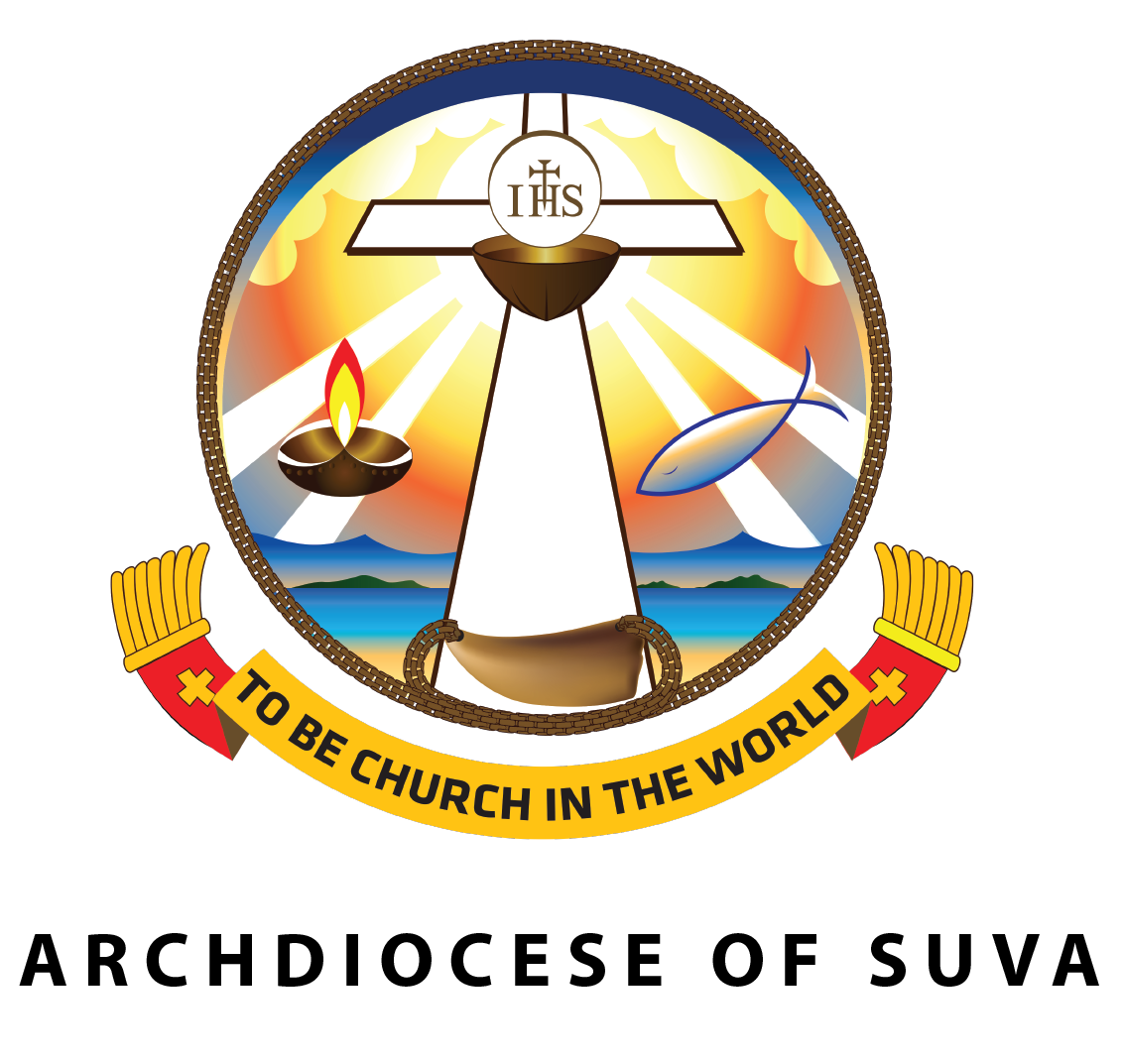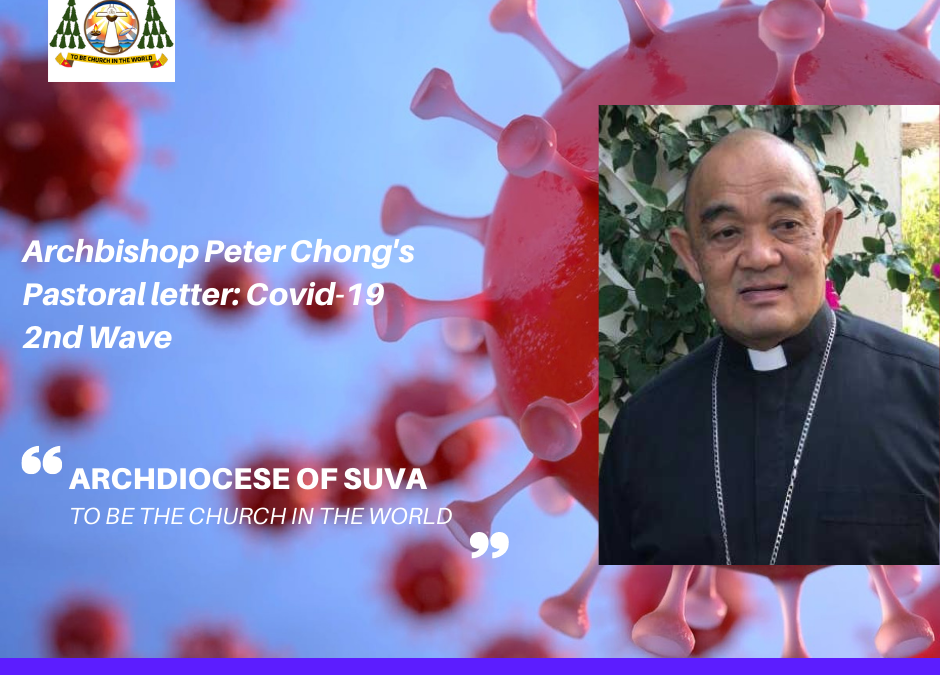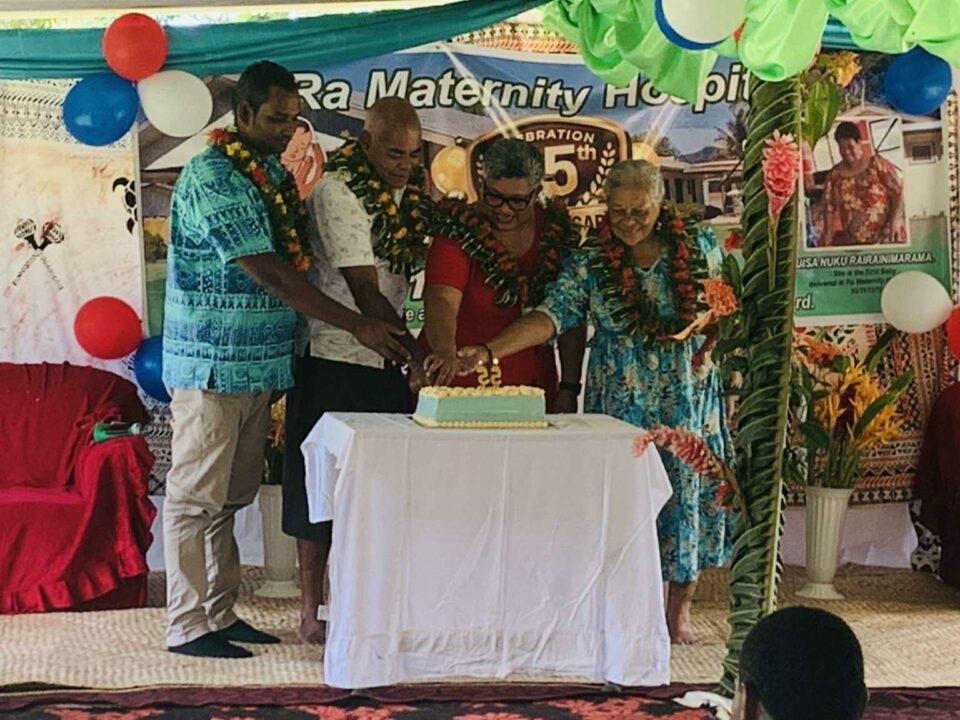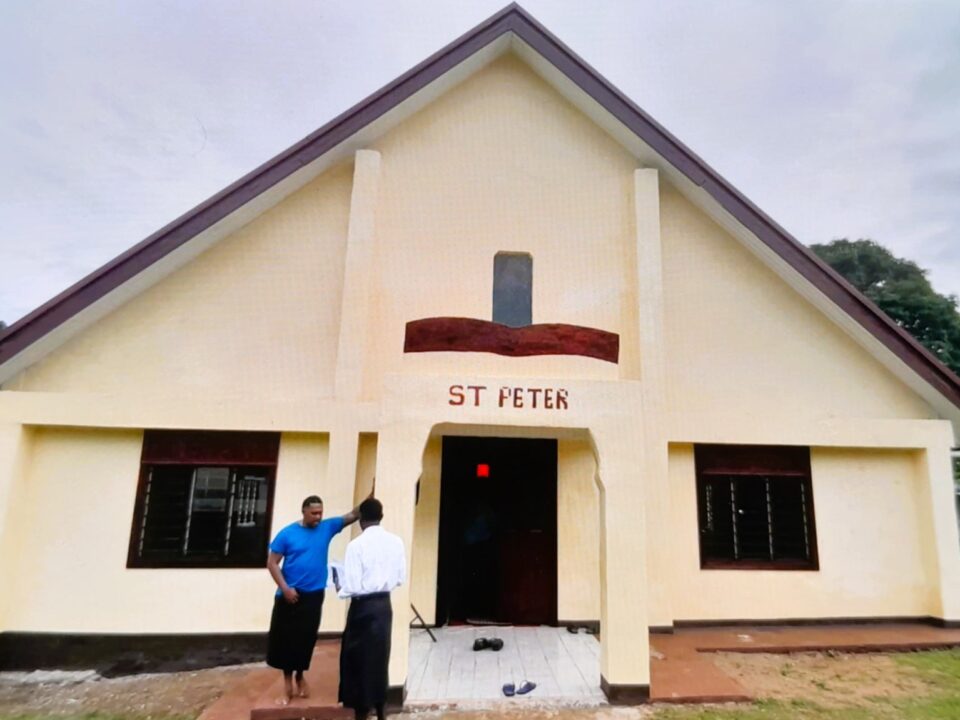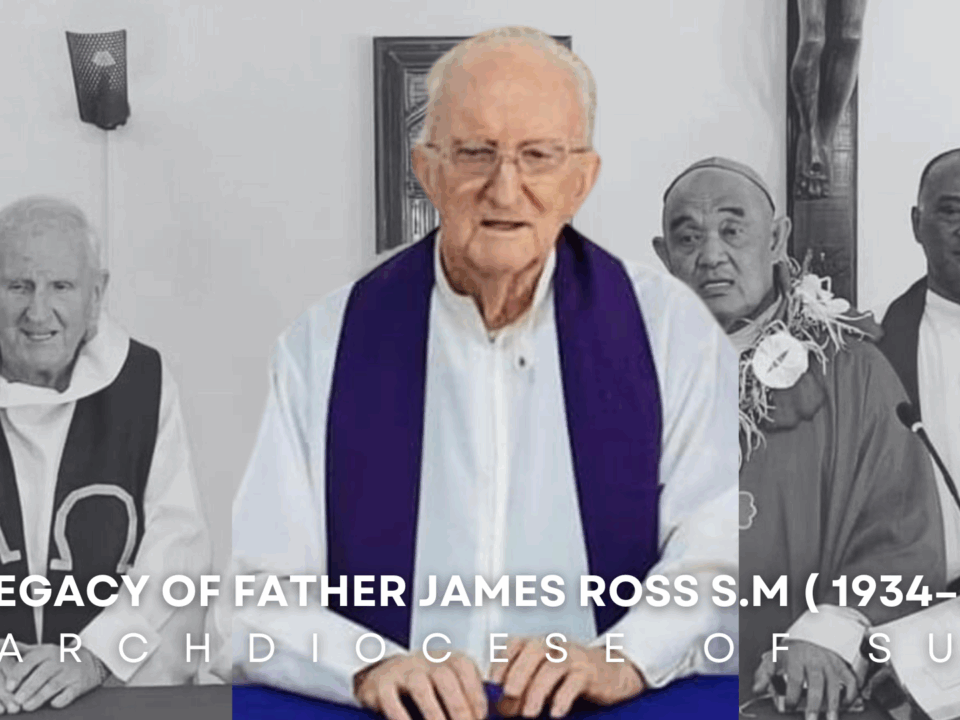PASTORAL LETTER: COVID-19 SECOND WAVE RESPONSE
Dear brothers and sisters in Christ,
Peace of God is with you!
During the height of Fiji’s COVID-19 second wave, my heart goes out to families that are confined to the limited spaces of their homes, families who struggle to provide food and comfort to children. I think of the sacrifices of medical teams, police and military offices, and volunteers have to make to protect us. I think of those tested COVID-19 positive and have to be isolated. Finally, I feel for those who have lost loved ones. My family and I know what it feels like when you cannot gather to remember the loss of a loved one. My nephew, Joseph Mow passed away in Dubai. We could not have the reguregu and proper funeral Mass for him due to COVID-19 protocols. COVID-19 has affected our lives. In uncertain situations like this faith (seeks to) searches for understanding. Where is God? What is God saying? What does God call us to?
Why suffering?
On May 5th I began to do short video reflections on the Book of Job. The Book of Job tries to answer the question: How are we to talk about God in the face of human suffering, particularly the suffering of innocent people. How can human beings (to) find a language applicable to God in the midst of innocent suffering? This is similar to the question that the world is asking now: How are we to talk about God in the midst of COVID-19, the impacts of climate change and poverty.
Job was a rich and righteous man (who live in the land of Uz). Satan tested Job’s faith. Job lost all his possessions. All his animals and ten children were killed by invaders. Despite these misfortunes Job still honored God. He did not curse God as Satan expected.
Satan tempted Job further by infecting Job with ulcers from his head to the sole of his foot. In all his misfortune Job did not curse God. However, he struggled to find an answer to his suffering. Why should he, an innocent man, suffer?
Satan’s view of religion is based on reward and judgment. He believes that Job is just and faithful only because of the possessions that God rewarded him with. Take away his possessions and he will curse God.
Eliphaz, Bildad, and Zophar, three of Job’s friends went to visit him. To support Job in his grief, they sat in silence with him for seven days. On the seventh day, Job began to speak, and the four of them shared their thoughts about Job’s afflictions. Job cursed the day he was born; “Perish the day which I was born and the night that told of a boy conceived.” All three told Job that he was sick because of his sins. They encouraged Job to ask God’s forgiveness. This is a classic Jewish interpretation of sickness; sickness is God’s punishment for sin. Sin and suffering are connected.
As a Jew, Job shares the Jewish belief regarding sickness. But he cannot accept this belief because he knows that he is a good and just man. Job disagrees with his friends. Job’s question still remains: How to speak of God in the context of unmerited and undeserved suffering.
Job’s question is also our question and the world’s question during the COVID-19 pandemic. How do we speak about God in a global pandemic? How do we speak about God when Mother Earth is crying because of human mistakes?
After Job’s long discussion with his friends, God finally speaks (Job 38). God speaks of his plan for humanity and his just government of the world. God reminds Job that God has a plan founded on unconditional free love. God does things freely and does not depend (of) on human action. God’s grace and blessing are unmerited and free. Grace and blessings are not God’s reward for human beings’ good works. Otherwise, it is not grace.
Job’s eyes are now opened to see God as he really is. He can now talk about God in the midst of suffering. God is still the creator and God has a plan. So Scripture tells us that God does not send disease to punish us. Why God allows this and other disasters to happen we are not able to say. We accept that our human minds cannot understand God or all that happens in the cosmos.
The greats feast days of Pentecost and Trinity Sundays also remind us that God is working in human history. The Holy Spirit hovered over creation when God made the world. The doctrine of the Trinity teaches how God the Father, the Son, and the Holy Spirit worked and continue to work in human history. The Trinity teaches us that God is a community. We are made in the image and likeness of God. Therefore, our response to COVID-19 should be a communitarian one. On the feast of the Visitation (May 31st), Mary through the Magnificat reminds us that God works his salvation plan by lifting up the weak and suffering and putting down the rich and powerful. God’s economy puts the weak and suffering at the center.
Our pastoral response to COVID-19 has to follow God’s plan. God is a community. Therefore, our COVID-19 Pastoral Response must also take on Trinity’s community spirit.
I met with our Episcopal Vicars on May 28th through ZOOM to discuss our pastoral response to the COVID-19 second wave. After this consultation I recommend the following:
- As a Christian community, everyone is responsible for stopping the spread of coronavirus. We cannot rely only on the government and medical teams, rather every citizen must take responsibility. We follow COVID-19 protocols because we are responsible people: stay at home, wash and sanitize hands, keep social distance, wear your mask, and get vaccinated.
- As a community in the image of the Trinity, we must help those who are suffering because of the virus and the economic crises.
- We pray because we believe that God is working even in dark and crooked moments in our lives. We are not alone. God is with us till the end of time. We encourage families to use the LOOK LISTEN LOVE GOSPEL SHARING METHOD. This is available on the Archdiocese of Suva Facebook. Some SCCs are doing bible sharing on Messenger and ZOOM.
- We recommend that Catholic Schools use the LOOK LISTEN LOVE method first to help teachers return to school and then help students as well.
- We are posting on the Archdiocese of Suva Facebook some parental guidance for an attentive listening to children.
Reaching out to the Poor
We have brothers and sisters who are already poor and those who are now poor due to COVID-19. The Archdiocese of Suva asks for donations in the form of non-perishable food or money so we can help members of our community who are in need. Food items can be dropped at Sacred Heart Cathedral Presbytery and monetary donations can be delivered to the Archdiocesan Office or direct deposit to
Account Name: RCA CARITAS
Account Number: 329943
Banks Name: Bank of South Pacific
Banks Complete Street Address: BSP Suva Central Building, Renwick Road, Suva, Fiji
Banks Mailing Address: Private Mail Bag, Suva, Fiji
SWIFT/BSB Number: BOSPFJFJ/069 003
Name of Organization: Roman Catholic Archdiocese of Suva
Complete Address of Organization: 35 Pratt Street, Suva, Fiji
Mailing Address of Organization: P O Box 109, Suva, Fiji
Banking Narration: C-19 – (your name optional)
I ask Community Leaders, Small Christian Community Leaders, Sector or Area Leaders to identify families and people that are in need. I ask parish priests to mobilize your parish teams to reach out to needy people in your respective parishes. Caritas Fiji and the Archdiocese Team will focus on food distributions to heavily affected parishes. These are Our Lady of Fatima, St John Bosco, St Michael, and St Mary Parishes.
Thank you for your generosity and love. God will be with us till the end of time.
Yours sincerely in Christ
Peter Loy Chong
